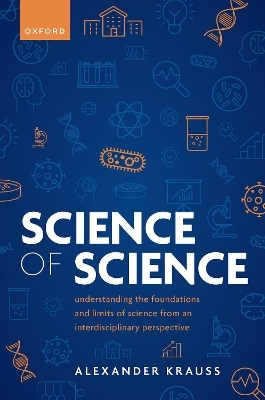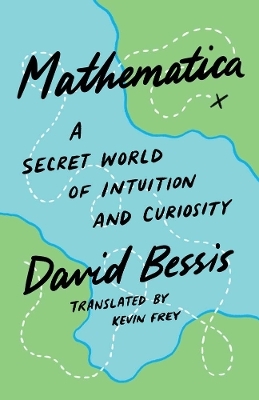
Science of Science
Oxford University Press (Verlag)
978-0-19-893737-1 (ISBN)
- Noch nicht erschienen (ca. Februar 2025)
- Versandkostenfrei
- Auch auf Rechnung
- Artikel merken
This is an open access title available under the terms of a CC BY-NC-ND 4.0 International licence. It is free to read on the Oxford Academic platform and offered as a free PDF download from OUP and selected open access locations.
How do we drive new knowledge and science? What are their present boundaries? And how can we improve science? We still do not understand these essential questions about science well, even though science is at the foundation of modern society.
The emerging field of the science of science can provide answers. The central challenge of the field is accounting for and integrating the different empirical and theoretical knowledge across disciplines into a holistic field and uncovering the general mechanism driving science.
Science of Science is the first book to provide an integrated framework for the field and thus aims to provide a comprehensive understanding of the foundations and limits of science. The book integrates 14 scientific fields and illustrates how our evolved mind (that enables us to observe, experiment and solve problems) makes doing science possible but also shapes what and how we observe. Our scientific methods and instruments (such as statistics and electron microscopes) enable us to study a much larger range of phenomena but also puts constraints on how we measure them. Institutions and funding shape what knowledge we produce and how we evaluate our evidence, among other influences.
Here, taking an interdisciplinary approach, Krauss explains how the sophisticated scientific tools we develop are the main driving force of creating new knowledge and advancing science. This methodological toolbox sets the scope and limits of what we can know and what is possible in science - while economic, social, and historical influences help shape what we study within that scope and those limits. The book provides a unifying theory for the field of science of science - the new-methods-drive-science theory. By better understanding the foundations of science we will also show how we can reduce the constraints and biases that we and our scientific methods and instruments face to advance science and push its present boundaries.
Alexander Krauss is a Research Associate at the London School of Economics and an Affiliated Professor at the Barcelona School of Economics and Spanish National Research Council. After completing his PhD, he worked for governments and the World Bank for five years before teaching at University College London.
Acknowledgements
Introduction
1: Describing Science of Science
2: Biology of Science
3: Archaeology of Science
4: Cognitive Science of Science
5: Psychology of Science
6: Sociology of Science
7: Economics of Science
8: History of Science
9: Anthropology of Science
10: Methodology of Science
11: Scientometrics and Network Science
12: Computer Science of Science
13: Statistics and Mathematics of Science
14: Philosophy of Science
15: Linguistics of Science
16: Science of Science: An Integrated and Methods-Driven Understanding of Science
17: Science of Science: An Integrated Field Grounded in the New-Methods-Drive-Science Theory
18: The Limits of Science: An Overview
19: The Limits of Science: Grounded in the Boundaries of Our Methods and Mind
20: The Limits of Science: Pushing the Limits of Science by Expanding Our Powerful Methodological Toolbox
Conclusion and Implications
Appendix
References
Index
| Erscheint lt. Verlag | 6.2.2025 |
|---|---|
| Zusatzinfo | 28 |
| Verlagsort | Oxford |
| Sprache | englisch |
| Maße | 156 x 234 mm |
| Themenwelt | Mathematik / Informatik ► Mathematik ► Geschichte der Mathematik |
| Naturwissenschaften | |
| ISBN-10 | 0-19-893737-7 / 0198937377 |
| ISBN-13 | 978-0-19-893737-1 / 9780198937371 |
| Zustand | Neuware |
| Haben Sie eine Frage zum Produkt? |
aus dem Bereich


